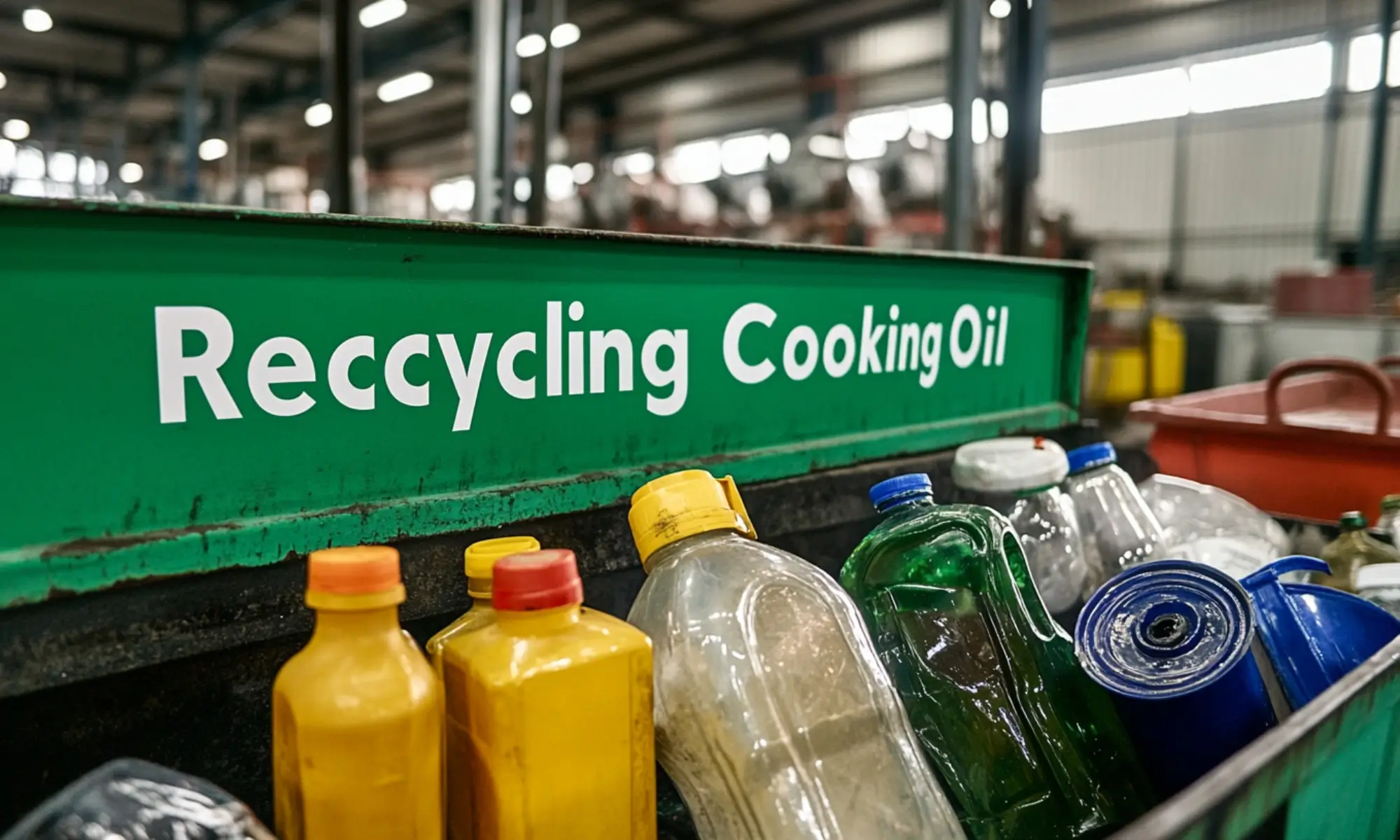Introduction to Used Cooking Oils Recycling
Used cooking oils are typically considered waste in many households and commercial kitchens, destined for the drain or trash. Usually collected from restaurants and food processing plants, these oils can be repurposed into eco-friendly products such as biodiesel, which reduces environmental pollution and offers an alternative to conventional fossil fuels. As sustainability awareness grows, individuals and businesses begin to understand the economic and ecological potential of recycling used cooking oils.
Environmental Benefits of Recycling
Recycling used cooking oils plays a crucial role in environmental conservation. However, this perspective overlooks a significant opportunity: the recycling of these oils that transforms them into valuable resources. When disposed of improperly, these oils can cause substantial harm, clogging water systems and creating pollutants that are difficult to manage. By recycling, the oils are diverted from landfills and water bodies, reducing the risk of pollution. Additionally, recycled oils are often transformed into biodiesel – a green alternative that produces significantly fewer greenhouse gases than petroleum-based diesel. This shift alleviates pressure on waste management systems and contributes to a reduction in the overall carbon footprint, fostering a healthier environment for future generations. According to various environmental studies, cities that implement comprehensive recycling programs report marked improvements in air and water quality, underlining the broad ecological benefits of this practice.
Economic Advantages for Businesses and Individuals
The economic implications of recycling used cooking oils are substantial. For businesses, particularly those in the food service industry, collecting and selling used oils to recycling companies can provide an additional revenue stream. Not only does this practice save on waste disposal costs, but it also supports the circular economy by turning waste into resources. On a larger scale, the recycled oil market continues to grow, and investments in this sector yield high returns. For instance, recent reports from Reuters highlight how industries are capitalizing on the rising demand for sustainable energy sources, which includes biodiesel derived from waste oils. Furthermore, individual households participating in local recycling initiatives may incur benefits such as discounts on waste management services, underscoring the broad economic incentives available to all participants.
The Process of Recycling Used Cooking Oils
The transformation from kitchen waste to valuable commodities involves a multi-step recycling process. Initially, used cooking oils are collected from various sources, ranging from household kitchens to large-scale food production facilities. Once gathered, the oils undergo a filtering process that removes food particles and other impurities. The filtered oil is then subjected to a purification stage, which enhances its quality, making it suitable for further processing into products like biodiesel. During this stage, chemical reactions are employed to convert the triglycerides in the oil into methyl esters and glycerol – the main components of biodiesel. This refined product is not only a sustainable fuel alternative but also matches or exceeds the performance specifications of traditional diesel. By understanding each step in this process, individuals and businesses can better appreciate the complexity and value embedded in recycling efforts.
Typical Applications of Recycled Oils
Recycled cooking oils are versatile and can be utilized across various industries. One of the most popular applications is the production of biodiesel, a renewable energy source that can power vehicles, machinery, and even some electricity generators. Beyond fuel, these oils are repurposed into animal feed supplements, providing a nutritious and cost-effective option for livestock and poultry farmers. The personal care industry is another beneficiary, using recycled oils to manufacture eco-friendly soaps, detergents, and cosmetics. These applications replace less sustainable alternatives and promote innovation in the products consumers use daily. The diverse uses of recycled oils exemplify this renewable resource’s vast potential across numerous sectors.
Challenges and Solutions in Used Cooking Oils Recycling
The journey of recycling used cooking oils has its challenges. Issues such as logistical constraints in the collection process, potential contamination, and market volatility present significant hurdles. Despite these obstacles, solutions are emerging. Innovations in technology have led to improved filtering and purification techniques, which enhance the overall efficiency and quality of the recycling process. Collaborative approaches, such as partnerships between local governments and private recycling firms, have been successful in streamlining collection systems and expanding recycling networks. Furthermore, policies supporting green energy initiatives help stabilize the market for recycled products, ensuring consistent demand and investment in this critical sector.
How You Can Get Involved
Individuals play a pivotal role in sustaining the recycling cycle of used cooking oils. Encouragement to participate in local recycling programs can lead to significant environmental benefits at a community level. By collecting and adequately storing used oils, residents can deliver them to designated recycling centers or arrange for pick-up services where available. Educational initiatives and outreach programs can boost awareness and participation, making cooking oil recycling routine in households. Ultimately, individuals help amplify the impact of recycling efforts by taking small steps to contribute, paving the way for widespread sustainability in everyday life.
Future Prospects for Used Cooking Oils Recycling
The future of used cooking oil recycling is bright, driven by technological advances and a growing global emphasis on sustainability. As industries increasingly recognize the value of circular economy practices, investments are being made into innovative recycling technologies that improve yields and efficiency. Emerging techniques and breakthroughs, highlighted in reports from BBC, promise to propel the sector forward, potentially reducing dependency on non-renewable resources. Additionally, as governments worldwide strengthen their environmental policies, more incentives and frameworks will likely emerge to support extensive recycling infrastructure. With these advancements, recycling used cooking oils is expected to become integral to sustainable development initiatives worldwide.
Keep an eye for more latest news & updates on Essential Tribune!








